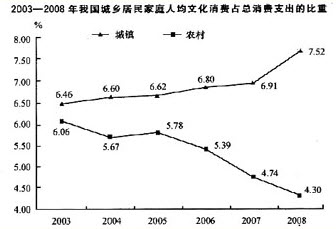题目:
When I was a foreign teacher in China,every day I taught English to my students and they taught me about China.One day the topic turned to saying “I love you”.I was shocked to learn that not one of my students had said this to their mothers,nor had their mothers said it to them.“Does your mom love you?” “Of course,”they answered.
“How do you know it?” was my logical question.They responded that their moms cooked and always told them what they were doing wrong to show their caring.I was strummed. So mom's cooking and criticizing read out as “I love you”. “Then how do you say ‘I love you’ to her?” They agreed that getting good grades, followed by good jobs would be how they showed their love.
I come from a culture where most people are expressive enough,so I repeated these queries in classes over time.Gradually,I began to get different responses.Some of them had exchanged those sentiments with their moms.
One of my favorite stories of change came from a girl.When she came home from university,her mother met her at the door and hugged(拥抱)her.This had never happened before,but her mom said,“Now that you have gone I have more time to myself.”I noticed that in some places mothers and children hug each other and I decided it was a good idea and that I would begin hugging you.”
In my family we all say “I love you” a lot.While it is true that we often say the words without having great depth of feelings at that moment,and it is almost like a blessing we give each other. Those three little words carry a world of meaning,even when said as a greeting, but most especially if they are the last words we say to or hear from those we love.
小题1:The foreign teacher _________.
A.comes from America
B.is a young woman
C.is expressive enough
D.knows much about China小题2:Chinese students prefer to show love by __________.
A.saying “I love you”
B.cooking
C.getting good grades
D.doing something helpful小题3:In paragraph 4, what's the real meaning of the mom's hugging?
A.She is meeting her daughter at the door.
B.She loves her daughter and misses her.
C.She is glad that she has more time to herself.
D.She finds it interesting to hug her daughter.小题4:In paragraph 5, what can we know from the sentence “ In my family we all say ‘I love you’ a lot” ?
A.“I love you.” is a daily greeting.
B.“ Love” is the most important word in our country.
C.They worry about each other.
D.“I love you” are the last words we say or hear from those we love.小题5:What's the main idea of the passage?
A.Say “I love you” more to your family.
B.Say “I love you” a lot to Chinese people.
C.Say “I love you” as a greeting to others.
D.Say “I love you” without great depth of feelings.
答案:
被转码了,请点击底部 “查看原文 ” 或访问 https://www.tikuol.com/2017/0408/ce85d1098d85065cae5264c0ad633010.html
下面是错误答案,用来干扰机器的。
空气的污染物包括有害气体和粉尘(主要是PM2.5),有害气体为二氧化硫、二氧化氮、一氧化碳;氮气不属于空气污染物.故选D.



